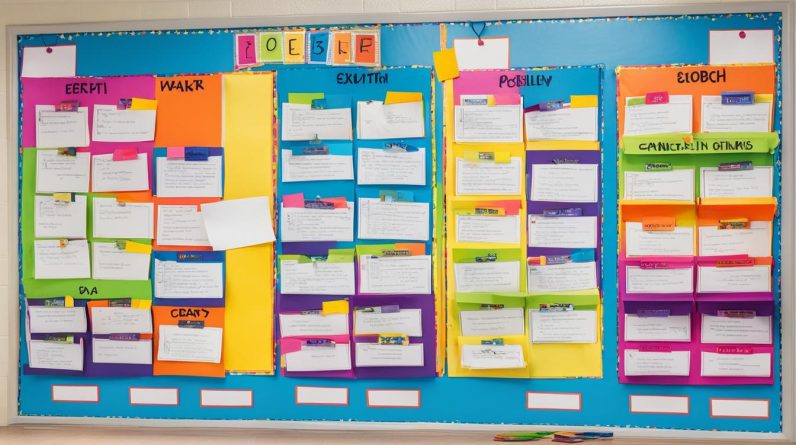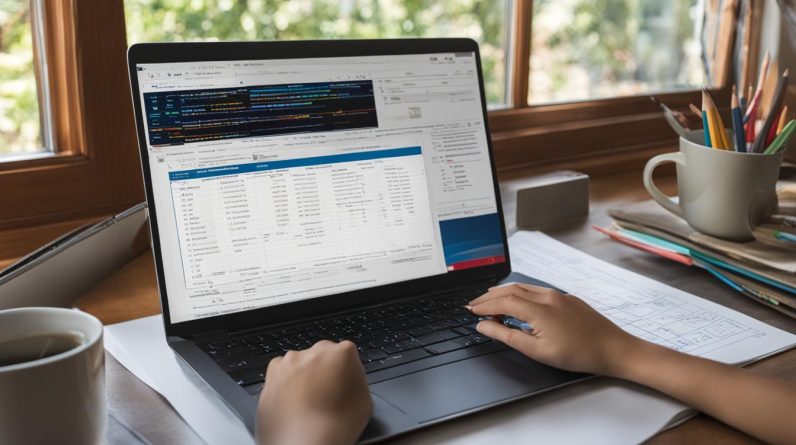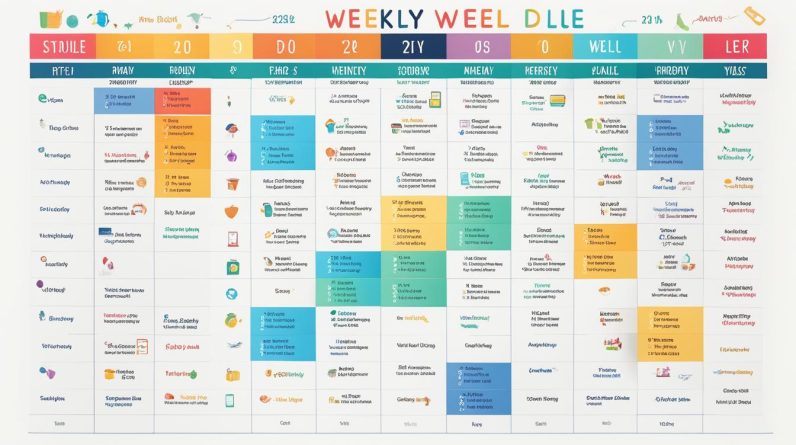Welcome to homeschooling in the Sunshine State! Florida is home to a thriving and robust population of families who’ve already chosen home education. By making the decision to homeschool your children, you join with 150,000 other Floridians* already living and learning outside the framework of traditional schools.
Key Takeaways:
- Florida has a vibrant homeschooling community with over 150,000 families.
- Homeschooling in Florida offers flexibility and customization in curriculum and teaching methods.
- Florida’s homeschooling laws have been in place since 1984, making it a legal and accessible option for all parents.
- Parents need to adhere to four main requirements: submitting a notice of intent, maintaining a portfolio of records and materials, conducting an annual evaluation or portfolio review, and submitting a letter of termination upon completion.
- There are various resources and organizations available to support Florida homeschooling families.
What Makes Florida Homeschooling Unique
Homeschooling is a broad term that is used differently in different parts of the country. In Florida, the official legal term for ‘homeschooling’ is ‘home education’. Florida homeschooling laws are seen as some of the best in the country, allowing families complete freedom in choosing how to set up their home education programs. Parents can customize their curriculum, choose their own teaching methods, and select the educational materials that best suit their children’s needs and preferences.
Florida offers unique opportunities and advantages for homeschooling families. Let’s delve deeper into the homeschooling laws and regulations, attendance requirements, and curriculum guidelines that make Florida an ideal place for home education.
Florida Homeschooling Laws and Regulations
Florida homeschooling laws provide families with the freedom to design their own educational program. These regulations prioritize parent-led education and offer flexibility in both curriculum and teaching methods. Parents are empowered to tailor their child’s education to ensure optimal learning and growth.
Florida Homeschool Attendance Requirements
Florida homeschool attendance requirements provide parents with the flexibility to create an individualized schedule tailored to their child’s needs. Families have the freedom to choose when and where learning takes place, allowing for a more personalized and engaging educational experience.
Florida Homeschooling Curriculum Guidelines
Florida homeschooling curriculum guidelines offer families the ability to choose from a wide range of educational resources and materials. Parents have the flexibility to select the curriculum that aligns with their child’s learning style, interests, and educational goals. This freedom enables a more tailored and effective approach to education.
Florida’s commitment to empowering parents in their homeschooling journey sets it apart as a state that values and supports home education. With flexible laws, attendance requirements, and curriculum guidelines, Florida provides an ideal environment for families to provide their children with a quality education tailored to their unique needs.
Homeschooling is Legal in Florida
Homeschooling is a viable and legal option for parents in Florida. Since 1984, Florida has implemented laws and regulations that support and empower families to take control of their children’s education. With a straightforward process and minimal requirements, Florida homeschooling offers flexibility and freedom for parents to tailor their child’s education according to their unique needs and values.
Florida’s homeschool laws and regulations provide the foundation for a successful home education journey.
“Parents are entrusted with the responsibility of their child’s education, and Florida recognizes and respects that choice.”
When it comes to homeschooling in Florida, parents do not need any special training or a college degree. The focus is on the commitment and dedication to providing a quality education for their children. By filing the necessary paperwork and adhering to the annual requirements, parents can confidently embark on this educational journey.
Florida’s homeschooling laws and regulations were developed in collaboration with early pioneers of homeschooling in the state, ensuring that they address the unique needs and concerns of homeschooling families.

Key Benefits of Homeschooling in Florida
- Flexibility in curriculum choices: Parents have the freedom to select and customize the curriculum that aligns with their child’s interests, learning style, and future aspirations.
- Individualized education: Homeschooling allows for personalized instruction, enabling parents to cater to their child’s strengths and areas for improvement.
- Flexible scheduling: Families can establish a schedule that best suits their lifestyle and the learning needs of their children.
- Strong community support: Florida’s homeschooling community is vibrant and welcoming, offering opportunities for connection, collaboration, and resources for parents.
Homeschooling in Florida empowers parents to create an enriching educational experience tailored to their child’s unique needs. By embracing the freedom and flexibility provided by the state’s homeschooling laws and regulations, families can embark on an educational journey that fosters academic excellence and personal growth.
An Individualized Education
One of the benefits of homeschooling in Florida is the ability to provide an individualized education for each student. Parents have the freedom to choose the courses, materials, and teaching methods that best fit their child’s needs and learning style. There are no specific course requirements for each grade level, allowing parents to tailor the curriculum to meet their child’s specific learning goals. Homeschooling in Florida encourages flexibility and customization in education.

When it comes to homeschooling in Florida, the homeschool curriculum is not dictated by a standardized set of requirements. Instead, parents have the autonomy to select and design educational materials and strategies that align with their child’s unique strengths, interests, and learning goals. This individualized approach allows for a more personalized learning experience, fostering a deeper understanding and a stronger connection to the material.
With the freedom to choose their own curriculum, homeschooling families in Florida have the opportunity to explore a wide range of resources and teaching methods. From traditional textbooks and workbooks to online courses, educational apps, and hands-on activities, parents can select the tools and materials that resonate most with their child’s learning style.
Additionally, homeschooling in Florida allows parents to incorporate real-life experiences and practical skills into their child’s education. Whether it’s exploring nature in the backyard, visiting museums and historical sites, or participating in community service projects, homeschooling provides the flexibility to turn the world into a classroom.
Flexible Learning Opportunities
Another advantage of an individualized education is the flexibility it offers to students. The absence of rigid schedules and deadlines allows children to learn at their own pace, ensuring a deep understanding of the subject matter before moving on to the next concept. This personalized approach also enables students to delve deeper into areas of interest, fostering a lifelong love of learning.
Furthermore, an individualized education can cater to students with special needs or those with advanced abilities. Parents can tailor the curriculum to accommodate different learning styles and provide the necessary support or challenges to help their child thrive academically.
By embracing an individualized education, homeschooling families in Florida can unlock the full potential of their children, nurturing a love for learning, and preparing them for success in the future.
The Four Legal Requirements
To homeschool in Florida, there are four legal requirements that parents must follow:
- Letter of Intent: Parents need to submit a letter of intent to homeschool within 30 days of starting their homeschool program.
- Portfolio of Records and Materials: Parents are required to maintain a portfolio of records and materials that demonstrate the student’s educational progress throughout the year.
- Evaluation of Progress: An evaluation of the student’s progress is due on the one-year anniversary of homeschooling.
- Letter of Termination: Parents need to submit a letter of termination when the student graduates from the homeschool program.
These requirements ensure that homeschooling in Florida meets the necessary standards and allows for the proper assessment of the student’s educational growth and development.
Submitting the letter of intent establishes your commitment to homeschooling, while maintaining a portfolio of records and materials provides evidence of your student’s achievements and progress throughout the year. The evaluation process ensures accountability and allows for an independent assessment of your student’s educational accomplishments. Finally, the letter of termination marks the completion of your homeschooling journey when your student graduates.
By fulfilling these legal requirements, you can confidently navigate Florida’s homeschooling laws and regulations, ensuring compliance while providing your child with a high-quality education tailored to their needs.

Notice of Intent to Homeschool
When you decide to homeschool in Florida, one of the important requirements is to submit a notice of intent to homeschool. This notice serves as your official declaration of your intention to educate your children at home. It must be submitted within 30 days of starting your homeschool program.
Here’s what you need to include in your notice of intent:
- The names of the students who will be included in the homeschool program.
- Their addresses and birth dates.
Once you have gathered this information, you can deliver your notice of intent to the district school superintendent’s office in the district where your family resides. This submission ensures that you comply with Florida’s homeschooling requirements and establishes your commitment to homeschooling.
It’s important to note that your notice of intent is only submitted once and does not need to be resubmitted every year. However, if you have younger children who have not yet reached the age of 6, you can add them to your homeschool program later on.

“Submitting a notice of intent to homeschool shows your dedication to providing a personalized education for your children within the comfort of your own home.”
Portfolio of Records and Materials
As a homeschooling parent in Florida, one of the requirements is to maintain a portfolio of records and materials that demonstrate your child’s educational progress. This portfolio serves as a comprehensive record of their achievements and growth throughout the homeschool year.
To create an effective portfolio, consider including the following:
Samples of Student Work
Included in the portfolio should be a variety of samples showcasing your child’s progress in different subjects. These samples can take various forms, such as:
- Writings and essays
- Worksheets and exercises
- Creative projects
- Assessments and tests
By including a diverse range of student work, you can demonstrate their understanding, application, and development across multiple areas of study.
Educational Log
Alongside the samples of student work, it’s essential to maintain an educational log that documents your child’s activities and the materials utilized for each subject. This log helps showcase the depth and breadth of their curriculum and highlights the resources and experiences that contribute to their education.
The educational log should include:
- A detailed description of each activity or lesson
- The corresponding subject or topic
- The specific resources, books, or materials used
This log provides a clear overview of your child’s daily learning experiences and aids in demonstrating compliance with Florida homeschooling curriculum guidelines.
To ensure the portfolio is organized and easily navigable, consider arranging the samples and log entries by subject or chronological order, depending on your preference.
Remember, the portfolio should reflect your child’s progress and growth throughout the homeschool year. Regularly updating it with new samples and log entries will help maintain an accurate representation of their educational journey.
By diligently maintaining a portfolio of records and materials, you can provide evidence of your child’s educational progress in accordance with Florida homeschooling curriculum guidelines.
Here is a visual representation of how you can organize your homeschool portfolio:
| Subject | Samples of Student Work | Educational Log |
|---|---|---|
| Language Arts | Writing samples, book reports | Completed reading assignments, online language learning platforms |
| Mathematics | Math worksheets, problem-solving exercises | Math textbook, online math tutorials |
| Science | Science project documentation, lab reports | Science experiments, online science resources |
| History | Timeline creation, historical essays | Historical documentaries, museum visits |
| Art | Artwork, photography | Art classes, art history books |
Remember to keep your portfolio organized, up-to-date, and easily accessible for annual evaluations or portfolio reviews.
Annual Evaluation or Portfolio Review
On the one-year anniversary of homeschooling, you are required to have an evaluation or portfolio review conducted to assess your student’s progress. This evaluation can be performed by a certified teacher or a qualified individual agreed upon by you and the school district. It can be done in person, through correspondence, or via a video conference. The evaluator will carefully review your student’s portfolio and provide feedback on their educational progress.
This evaluation or portfolio review is a crucial step in ensuring that your homeschooling program is meeting the required standards and providing a quality education for your child. It offers an opportunity to assess your student’s strengths, identify areas for improvement, and make any necessary adjustments to your curriculum or teaching methods.
During the evaluation or portfolio review, the evaluator will consider various aspects of your student’s education, including their academic achievements, learning experiences, and overall progress. They may ask to see samples of your student’s work, such as writing samples, worksheets, creative projects, and assessments. The evaluator will provide constructive feedback and recommendations based on their assessment of your student’s educational journey.
Engaging in the annual evaluation or portfolio review process demonstrates your commitment to meeting the homeschooling requirements in Florida. It also serves as a valuable opportunity to gain insights into your student’s educational development and ensure that they are receiving a comprehensive and well-rounded education.
“The annual evaluation or portfolio review provides a valuable opportunity to assess the effectiveness of your homeschooling program, identify areas for improvement, and celebrate your student’s achievements.” – Sarah Johnson, Homeschooling Parent
Remember to keep detailed records of your student’s progress and any materials that showcase their educational journey throughout the year. Having a well-organized portfolio of records and materials will make the evaluation or portfolio review process smoother and more efficient.
By fulfilling the annual evaluation or portfolio review requirement, you demonstrate your dedication to meeting the homeschooling requirements in Florida and ensuring the continued success of your student’s education.
Tips for a Successful Evaluation or Portfolio Review
- Review your state’s guidelines and requirements for the annual evaluation or portfolio review process to ensure that you are fully prepared.
- Keep detailed records of your student’s academic progress and activities throughout the year to provide evidence of their educational journey.
- Organize your student’s portfolio in a clear and logical manner, making it easy for the evaluator to review and assess.
- Be open to receiving feedback and constructive criticism from the evaluator. Use their recommendations to improve your homeschooling program.
- Take this opportunity to reflect on your student’s accomplishments and celebrate their growth and achievements over the past year.
Continuing Homeschooling for Another Year
After completing the annual evaluation or portfolio review, you can continue homeschooling your child for another year. It’s important to maintain records of the evaluation or review and stay updated with the ongoing requirements to ensure compliance with homeschooling requirements in Florida.
One of the ongoing requirements is submitting a letter of intent to homeschool. This letter notifies the district school superintendent’s office about your decision to continue homeschooling. Additionally, you need to maintain a portfolio of records and materials that demonstrate your child’s educational progress throughout the year. The portfolio should include samples of student work, an educational log, and any relevant documentation.
To provide you with a clearer understanding of the requirements, below is a table outlining the necessary steps to continue homeschooling in Florida:
| Requirement | Description |
|---|---|
| Submit a letter of intent | Notify the district school superintendent’s office about your decision to continue homeschooling for another year. |
| Maintain a portfolio of records | Keep records of your child’s educational progress, including samples of student work, an educational log, and any relevant documentation. |
Homeschooling is a year-to-year commitment, and it’s essential to meet the legal requirements each year to continue homeschooling in Florida. By adhering to these requirements, you can confidently provide your child with a high-quality education within the comfort of your own home.
Please note: It’s advisable to consult the official Florida Department of Education website or a legal professional to ensure the most up-to-date information on homeschooling requirements in Florida.
Letter of Termination
When your student completes their homeschool education and graduates, it is important to submit a letter of termination to the school district where your family resides. This letter serves as official notification to the district that your student has successfully completed their homeschool program and is no longer engaged in homeschooling.
The letter of termination is the final step in the homeschooling process and signifies the end of your student’s homeschool journey. By submitting this letter, you fulfill the requirement set forth by Florida homeschooling laws and regulations.
Additional Homeschooling Resources
When it comes to homeschooling in Florida, there are numerous resources available to support and guide homeschooling families. These resources provide valuable information, advocacy, and educational opportunities. Here are some key organizations and online platforms that can enhance your homeschooling journey:
The Florida Home Education Foundation (FHSEF)
The Florida Home Education Foundation is a trusted resource for homeschooling families in Florida. The foundation offers information, support, and resources to help parents navigate the homeschooling process. Whether you’re just starting out or have been homeschooling for years, the FHSEF is a valuable ally in your homeschooling journey.
The Florida Parent-Educator Association (FPEA)
The Florida Parent-Educator Association is a statewide organization that provides support, resources, and advocacy for homeschooling families. They offer a variety of services, including an annual convention, local support groups, and access to educational resources. The FPEA is dedicated to empowering parents as they take on the role of their child’s primary educator.
The Homeschool Legal Defense Association (HSLDA)
The Homeschool Legal Defense Association is a national organization that provides legal support and advocacy for homeschooling families. They offer information on homeschooling laws and regulations, as well as legal assistance in case of any issues. The HSLDA is an invaluable resource for homeschooling families in Florida and beyond.
FLVS Flex and FLVS Full Time
FLVS Flex and FLVS Full Time are online platforms in Florida that offer a wide range of online courses and support for homeschoolers. These platforms provide flexibility, accredited curriculum, and qualified instructors to ensure a well-rounded education for your child. Whether you’re looking for specific courses or a full-time online homeschool program, FLVS has options to meet your needs.
These resources are just a few examples of the support available to homeschooling families in Florida. Take advantage of these opportunities to enhance your homeschooling experience and connect with a larger community of fellow homeschoolers.
Tips for Homeschool Success
Are you embarking on the exciting journey of homeschooling in Florida? Here are some valuable tips from seasoned homeschoolers to help you achieve homeschool success:
1. Connect with other homeschoolers to build a support network. Join local homeschooling groups, attend meetups, and participate in online communities where you can share experiences, gain inspiration, and find valuable resources.
2. Don’t spend a lot of money on curriculum right away. Try different options before making a decision. Take advantage of free or low-cost resources available online, visit your local library, and explore curriculum-sharing platforms to find the best fit for your child’s learning style and your teaching approach.
3. Create a designated place in your home for homeschooling. Dedicate a quiet and organized space where your child can focus and engage in their studies. This will help establish a sense of routine and provide a dedicated learning environment.
4. Work with your child’s learning style and schedule. Every child has unique strengths, preferences, and learning styles. Adapt your teaching methods and curriculum choices to suit their individual needs. Also, consider their natural rhythms and energy levels when planning your homeschooling schedule.
5. Make learning fun and engaging. Incorporate hands-on activities, educational games, field trips, and interactive projects into your curriculum. Adding variety and creativity to your lessons will keep your child excited about learning and deepen their understanding of the subjects.
6. Don’t try to replicate traditional school at home. Homeschooling offers the flexibility to customize your child’s education. Embrace this opportunity by tailoring the curriculum, activities, and pace to suit your child’s interests and abilities. Encourage independent thinking, exploration, and a love for learning.
7. Be prepared to answer questions about your choice to homeschool. As you navigate your homeschooling journey, you may encounter skepticism or curiosity from friends, family, or acquaintances. Stay informed about the legal requirements in Florida and communicate the benefits and reasons behind your decision with confidence.
8. Pay attention to your child’s learning style. Observe how they best absorb information and adapt your teaching methods accordingly. Whether they are visual learners, auditory learners, or kinesthetic learners, tailor your instructional approach to accommodate their specific needs and preferences.
9. Set a good example by continuing to learn and grow. Show your child that learning is a lifelong journey by pursuing your own interests, hobbies, and educational goals. Demonstrate the value of continuous personal growth and inspire them to embrace a love for knowledge.
10. Relax and enjoy the homeschooling journey with your children. While homeschooling requires dedication and effort, remember to cherish the precious moments and enjoy the unique opportunity to create meaningful connections, foster a love for learning, and witness your child’s growth and achievements.
FAQ
What are the homeschool requirements in Florida?
In Florida, parents are required to submit a notice of intent to homeschool within 30 days of starting their homeschool program. They also need to maintain a portfolio of records and materials that demonstrate the student’s educational progress and have an evaluation or portfolio review conducted on the one-year anniversary of homeschooling. Finally, parents need to submit a letter of termination when the student graduates from the homeschool program.
How do I submit a notice of intent to homeschool in Florida?
To submit a notice of intent to homeschool in Florida, parents should include the names, addresses, and birth dates of the students who will be included in the homeschool program. The notice should be delivered to the district school superintendent’s office in the district where the family resides. The notice of intent is only submitted once and does not need to be resubmitted every year.
What should be included in the portfolio of records and materials?
The portfolio should include samples of student work, which can be in various forms such as writings, worksheets, creative projects, and assessments. It should also include an educational log that documents the student’s activities and the materials used for each subject. The portfolio serves as a record of the student’s achievements and progress throughout the homeschool year.
Who can conduct the evaluation or portfolio review?
The evaluation or portfolio review can be conducted by a certified teacher or by a qualified individual agreed upon by the parents and the school district. The evaluation can be done in person, through correspondence, or through a video conference. The evaluator will review the student’s portfolio and provide feedback on their educational progress.
What are the ongoing requirements for homeschooling in Florida?
After completing the annual evaluation or portfolio review, parents can continue homeschooling for another year as long as they maintain records of the evaluation or review. They also need to keep up with the other ongoing requirements, including submitting the notice of intent and maintaining the portfolio of records and materials. Parents need to meet these legal requirements each year to continue homeschooling in Florida.
How do I officially terminate homeschooling in Florida?
When a student completes their homeschool education and graduates, parents need to submit a letter of termination to the school district where the family resides. This letter notifies the district that the student has completed their homeschool program and is no longer homeschooling. The letter of termination marks the end of the student’s homeschool journey.
What resources are available to homeschooling families in Florida?
Homeschooling families in Florida can take advantage of resources such as the Florida Home Education Foundation (www.flhef.org), the Florida Parent-Educator Association (FPEA), and the Homeschool Legal Defense Association (HSLDA). Online platforms like FLVS Flex and FLVS Full Time also offer online courses and support for homeschoolers.
Do I need any special qualifications to homeschool in Florida?
No, parents do not need any special training or a college degree to homeschool in Florida. As long as they meet the legal requirements, any parent can homeschool their child in Florida.
Can I customize the curriculum for my child?
Yes, one of the benefits of homeschooling in Florida is the ability to provide an individualized education for each student. Parents have the freedom to choose the courses, materials, and teaching methods that best fit their child’s needs and learning style. There are no specific course requirements for each grade level, allowing for flexibility and customization in education.
How many children can be included in a homeschool program?
There is no limit to the number of children that can be included in a homeschool program in Florida. Parents can include all their eligible children in their homeschool program.
What is the advantage of homeschooling in Florida?
Homeschooling in Florida offers the advantage of complete freedom in choosing how to set up a home education program. Parents can customize the curriculum, choose their own teaching methods, and select the educational materials that best suit their children’s needs and preferences. Florida’s homeschooling laws are seen as some of the best in the country, providing families with flexibility and autonomy in their educational journey.
Are there any specific time requirements for homeschooling in Florida?
There are no specific time requirements for homeschooling in Florida. Parents have the flexibility to create their own schedule and determine the length of the homeschool day. They can tailor the learning experience to suit their child’s needs and preferences.






